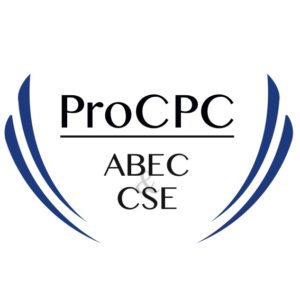 Brazil ranks 24th among countries that publish the most in high-impact journals, according to Nature Index.1 This fact highlights the potential for scientific production in the country. However, the dissemination of research data is unfortunately not always the main motivation behind this production. Many authors publish to strengthen their chances of receiving support from funding agencies or to advance in their academic careers (or both) and consequently focus on increasing their number of published articles to the detriment of quality. This attitude may result in selecting a journal for each manuscript according to subjective criteria, such as the time between submission and publication. Given these factors, some institutions in Brazil have come to believe the process of disseminating their scientific output can be accelerated by creating their own journals.
Brazil ranks 24th among countries that publish the most in high-impact journals, according to Nature Index.1 This fact highlights the potential for scientific production in the country. However, the dissemination of research data is unfortunately not always the main motivation behind this production. Many authors publish to strengthen their chances of receiving support from funding agencies or to advance in their academic careers (or both) and consequently focus on increasing their number of published articles to the detriment of quality. This attitude may result in selecting a journal for each manuscript according to subjective criteria, such as the time between submission and publication. Given these factors, some institutions in Brazil have come to believe the process of disseminating their scientific output can be accelerated by creating their own journals.
Although estimating the number of Brazilian scientific journals is difficult, it is known to be quite large. According to the Instituto Brasileiro de Informação em Ciência e Tecnologia (Ibict)—the local institution responsible for ISSN registration—the number of Brazilian journals exceeds 20,000. However, few of them achieve an international standard, and some do not publish longer than a few years. The Table shows a small number of Brazilian journals found in some relevant directories, platforms, and associations.
| Location? | Number of Brazilian Journals Listed |
| OJS (Br)2 | 1,800 |
| Directory of Open Access Journals3 | 1,021 |
| Scopus4 | 448 |
| SciELO Brasil5 | 358 |
| ABEC Brasil6 | 337 |
| Redalyc7 | 240 |
| WOS/JCR8 | 129 |
Being indexed in relevant international platforms became the “quality seal” for a Brazilian journal, making it a high-priority goal for every editor in chief. To reach this goal, the journal must fulfill a series of requirements, which is possible only if it has a committed editorial team ready and able to understand the nuances of this important activity. Further complicating this pursuit is the fact that most Brazilian journals are not produced by known international publishers; rather, the whole workflow is the editor-in-chief’s responsibility.
“This certificate program caters to the need of a Brazilian scholarly community and, seeing the effectiveness of the program and the impact on the careers of those who take advantage of it, we plan to have this certification as a qualification badge for journals in a very close future.”—Prof. Dr. Ana Marlene Morais (vice president of ABEC Brasil; coordinator and current student of ProCPC)
Under these circumstances, the editor in chief’s responsibilities have increased, and he or she must thoroughly understand tools and management and possess the flexibility to overcome obstacles that may appear during the evaluation, selection, and publication of an article. Under pressure to speed up the workflow, cases of misconduct are expected to grow, and thus, the editor in chief must identify, confront, and punish cases of plagiarism and deal with their consequences. The editor in chief must also learn about copyright and use of appropriate licenses, not to mention all the effort required to obtain financial support and manage resources through article-processing charges, subscriptions, or, for non–open-access publications, access fees. An additional step is disseminating articles through social media, using inviting, appropriate language to attract the attention of the general public. Furthermore, editors in chief need to take care of their staffs by motivating, encouraging professional development, and preparing suitable individuals to eventually transition into the position of editor in chief.
The editor-in-chief role is usually delegated to a researcher who excels in academic activities, with substantial experience in article publishing, that is, with a respectable h-index (a measure that aims to describe the scientific productivity and influence of a researcher). However, such achievements do not guarantee the researcher has the skills required for the editor-in-chief role; these are acquired empirically, because no specific training courses are available in Brazil.
“In this program, I had the chance of understanding the challenges and particularities of the national and international scientific publishing scenario.”—Prof. Dr. Herbert Kimura (editor in chief of Revista de Administração Contemporânea; first certified by ProCPC)
Against this background, the Associação Brasileira de Editores Científicos (ABEC Brasil), a scientific society founded in 1985, sought an international partnership to offer an opportunity for Brazilians to attain the necessary expertise to perform well, and the CSE Publication Certificate Program proved to be a perfect fit. Angela Cochran (past president of CSE) and Ana Marlene Morais (vice president of ABEC Brasil) promoted a liaison between CSE and ABEC Brasil and, through a memorandum of understanding, a hybrid program called the Scientific Certification Program (ProCPC) was created. It soon became apparent that not only the editor in chief but all editorial staff would benefit from this program, which was designed for anyone with a strong interest in scholarly publication who is looking for an opportunity to learn more or enhance his or her skills. The actual audience is mixed, and editors in chief constitute the largest percentage of participants, followed by librarians and editorial assistants.
Participants are expected to complete all the requirements, which involve webinars, short courses, and conference attendance, in five years, after which a final project based on what was learned is presented. Via ProCPC, most requirements can be fulfilled in Brazil, a significant benefit to participants. Also, in 2015, CSE certified ABEC Brasil to manage short courses in the country, making the program even more affordable for the participants.
Launched in 2015, the program has had an excellent response in the Brazilian scholarly community, with a total of 53 students, two of whom were certified this year—Professors Simone Appenzeller and Herbert Kimura, editors in chief of Revista Brasileira de Reumatologia and Revista de Administração Contemporânea, respectively.
Acknowledgments
Thanks to Ana Marlene Morais and Herbert Kimura for their comments.


Links
- https://www.natureindex.com/annual-tables/2016/country/all
- https://www.bad.pt/publicacoes/index.php/cadernos/article/view/1208
- https://doaj.org/search#.WYWg64jyvIU
- https://www.elsevier.com/solutions/scopus/content
- http://www.scielo.br/scielo.php?script=sci_alphabetic&lng=en&nrm=isso
- https://www.abecbrasil.org.br/novo/
- http://www.redalyc.org/pais.oa?id=21&tipo=coleccion
- https://www.abecbrasil.org.br/includes/noticias/arquivos/jcr2016_17.pdf
Bruna Erlandsson is the owner of Linceu Editorial.
